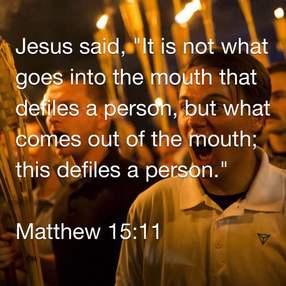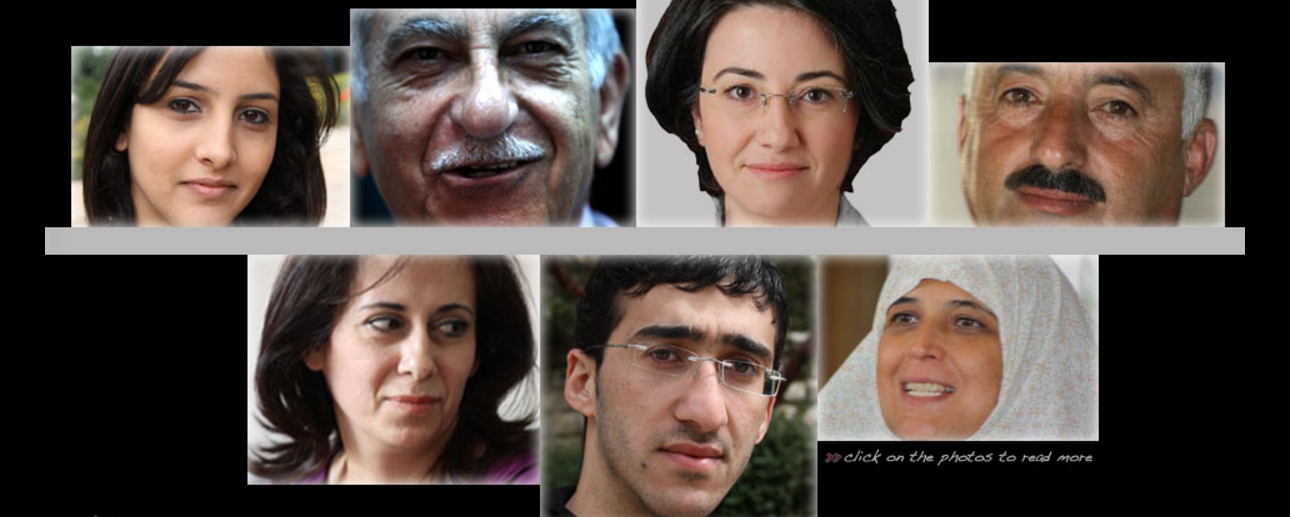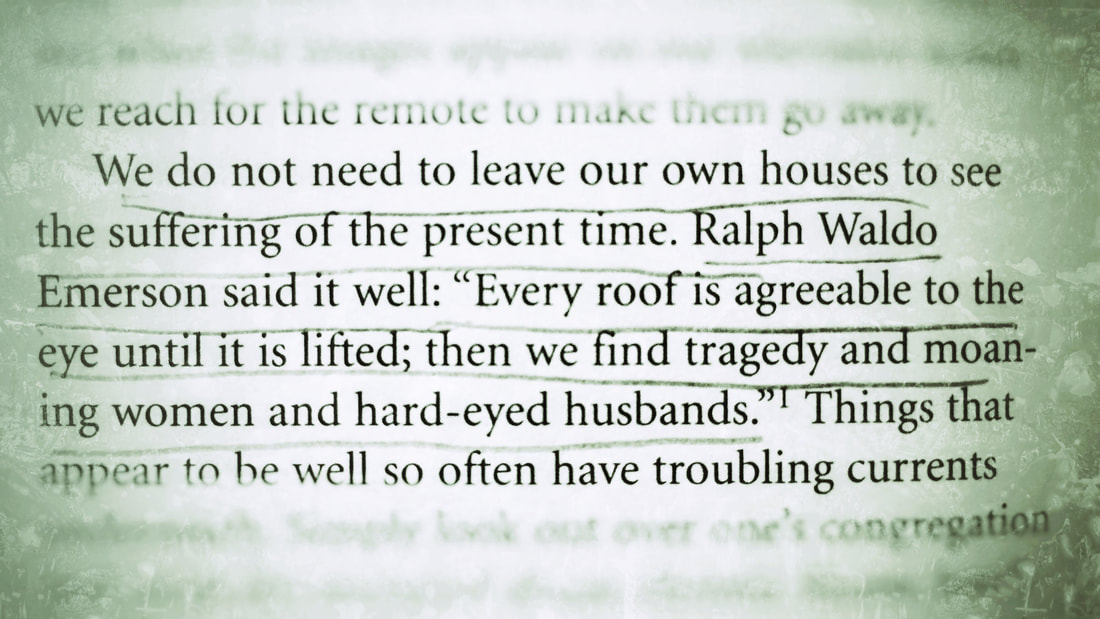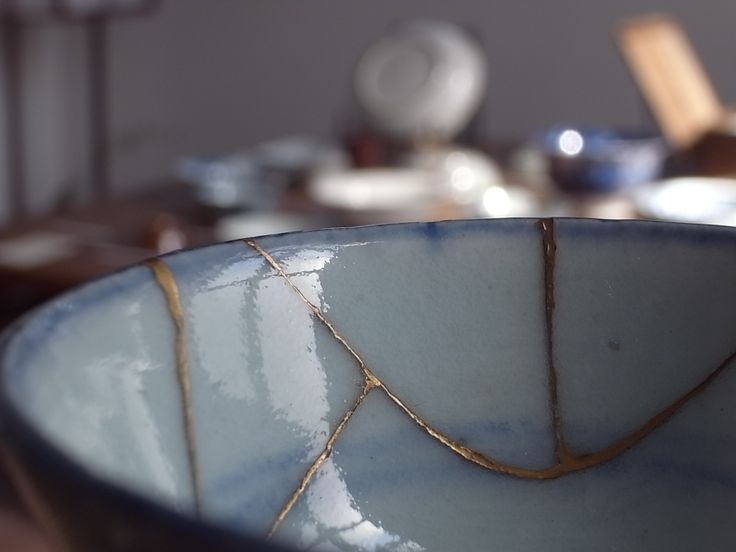|
A powerful Facebook post offers a big lesson about judgment.  Caroline Bologna gives us a story that speaks volumes to changing basic human behavior...gossip. It also touches on this blogs vision and call to be more Christ-like in the way we meet and get to know people. It's a quick, feel-good story and a great reminder for us all to take the little extra time to get to know someone before we judge them. Thank you to Huffington Post for running it. Read the story here: On a similar note, John's gospel tells two great stories of Jesus. Read about Jesus meeting a woman at the well (John 4:1-30) and a woman caught in adultery (John 8:1-11). In both you'll discover how he teaches us how to break taboos and gives us guidance for understanding how our judgement and traditions are often at odds with the Kingdom of God and the love that brings people together instead of pulling us apart. The sooner we learn who we really are and what we really mean to God, the sooner we can grow in God’s love. This past week I have spent a considerable amount of time organizing some 900 plus photos from our vacation, out of which I chose a few to do a little touch up work on. Some I simply corrected the white balance and the exposure, while on others I removed a pimple here or an unwanted line there. Using a feature that smooth’s skin and hides unwanted blemishes, the harsh wear and tear of life disappear with a single click. Feeling pretty proud of my work, I showed Kathleen and Fiona the photos. To my surprise, they both hated the same thing. That smoothing feature, they said, made everyone look hazy and fake. As I looked at the pictures again, I could see that they were right. Something was missing…The very essence of who we really are. In his book “Through the Stained Glass Window,” my friend the Rev. Dr. Lowell Linden spoke of G. K. Chesterton who had written about an unknown man that everyone had criticized for one reason or another. “To the tall men he was too short. To the short men he was too tall. To the blonde men he was too dark. To the dark men he was too blonde.” The reason for the criticism, as Chesterton observed, was that each of those people doing the criticizing saw something in the man that they didn’t like about themselves. It makes me wonder what the judgment the girls and I had made about the photos said about how we view ourselves. The moral of Lowell’s story was simple. “We need to see ourselves and others as God sees us. If this could be the case then perhaps we would see each other in better light. While humans look upon the outward appearance, God looks inward upon the heart.” The girl’s reaction taught me I wasn’t really enhancing the pictures as much as I was erasing something that need not be erased: The very idea that God doesn’t care what we look like on the outside; our real beauty lies in our heart where God has planted the seed of love. Like a mirror, we have to allow ourselves to be seen exactly as we are if we want this seed to grow. This is easier said than done in a society where image is everything. But those who struggle with body image, or any false image for that matter, must never lose sight that “All God can love is who you really are. If you have to make yourself better or judge yourself to be worse, you are not allowing the perfect and unconditional gaze of God" to shine within you…or from you. (Rohr, 2013). Let me ask you this: When you look into the mirror, what image do you see? Do you pick apart your skin, your weight, your height, your muscles mass? And more importantly, what does it say about how you measure your own self worth? It’s hard to answer honestly because we are often our harshest critics. The cosmetic and personal health industry knows this. They thrive on our personal insecurity; spending billions of dollars to convince us that we need plump lips and thin lines, silky skin and rock hard abs, and hair that’s…well, let’s not even go there. How we see ourselves is often at odds with how God sees us. Numerous studies indicate low self-esteem and poor body image in teenagers is on the rise. And advertisers can’t take all the blame. Social media is a major influencer that I believe affects us all. Do you ever get envious when you see pictures of an old classmate traveling around the world while you stay home and work? Or how do you feel when you see a post about someone you don’t really like who has lost a ton of weight as you struggle to get into your jeans? As most experts agree, a healthy body image early on can lay the foundations for good physical and mental health later in life. Of course, an unhealthy body image can have life-long consequences. The same can be said about our self-image as God’s beloved children; the sooner we learn who we really are andwhat we really mean to God, the sooner we can grow in God’s love. And the sooner we can share that love in the world. Thus it’s more important to have a good heart than it is to have a great head of hair. As I was preparing this message, I thought about Jesus dealing with an unhealthy body image. As funny as that sounds, Jesus knows that Christians, the Body of Christ, tend to spend too much time and resources worrying about their outward appearance, often at the cost of doing the real work within. Typical of today’s culture, most churches still judge themselves on human terms; worrying more about by size and stature rather than substance. To borrow from last week’s sermon, we are not measured by how big or how small our church is, but how big or small our Christ is within the walls of our heart. For it’s in Christ, and through Christ, a holy body finds its true self worth. Throughout the New Testament we learn that our divine character is measured by the love and faithfulness of Christ that dwells within us. And how we display his faithful love in the world. Cut from perfect cloth, Christ love is a one size-fit’s all kind of love; perfectly tailored for anyone who desires to put it on. By allowing such virtues to permeate our heart, we begin to see more clearly our true self as God has always seen us. Moreover, when we wear Christ’s love in the world, we become the mirror of Christ’s glory for others to see their real beauty and their true self-worth in God’s kingdom. The change we make within ourselves has the power to change the entire world. It reminds me of what is written in the Vedas of ancient Hinduism some 3,000 years ago: Tat Tvam Asi which loosely translates to mean “We are what we seek.” And so, as Paul pointed out to us in the reading this morning, “Watch what God does, and then do it. And what God mostly does is love you.” Paul offers this advice: “If you keep good company with God, you will learn to live a life of love.” An easy way to achieve this goal is to set Christ as your example. Paul says, “Observe how Christ loved us. His love was not cautious but extravagant. He didn’t love in order to get something from us but did so to give everything of himself to us.” This is what Paul so famously coined… go and be imitators of Christ. Just as Jesus saw the people who were sick or hungry and had compassion for them, so too must we do the same for those people in our communities who are crying out for help. This could be someone in our family or close circle of friends; a co-worker or someone at Starbucks; it might be a tired nurse at the doctor’s office or an out of work veteran all alone in the apartment next door. To imitate Christ, is not simply to have love and faith, but to be that faithful love in the most profound and non-judgmental ways. This means we must be always willing to support the widows and the orphans, offer proper healthcare the sick, fresh food for the hungry, and clean water to all who are thirsty. We must visit the imprisoned and rescue those held captive in abuse of all stripes. We have to be willing to wash the dirty feet of both our friends and enemies, and welcome strangers and aliens with open arms. For it’s “The least of these,” as Jesus calls them, who are often considered the blemishes on our society. But unlike a blotch found on a selfie, these people cannot be so quickly erased. Like our own scars and wrinkles they must be seen, accepted, and even embraced- so that the real story of brokenness is known, and all the factors that led up to it can become the good news of our redemption story. I suspect that when the world sees this image coming out of a church, the more likely they’ll be to want to get to know what dwells inside…and to be a part of the essence of who we really are, an imperfect picture of Christ’s perfect glory. Work Cited: Linden, Lowell. Through The Stained Glass Window.(Redlands: FCC, 1995) . p. 120. Rohr, Richard. Immortal Diamond: The Search For Our True Self. (San Francisco: Jossey-Bass, 2013).
" Love is you. Love, and your deep need for love, recognizes Love itself. Remember that you already are what you are seeking. Any fear that your lack of fidelity could cancel God’s fidelity, is “absurd” (Romans 3:3). "Love finally overcomes fear. Your house is being rebuilt on a new and solid foundation. This foundation was always there, but it takes us a long time to find it; remember, “it is love alone that lasts” (1 Corinthians 13:13)." Adapted from Richard Rohr, Immortal Diamond: The Search for Our True Self (Jossey-Bass: 2013), 25, 176-179. "In some form of wordless, contemplative prayer, you are letting yourself be known nakedly by God, with no pretense, no perfect words, no performance principle whatsoever. Like a mirror, you just allow yourself to be seen exactly as you are. All God can love is who you really are, your True Self, because that's the only thing that exists anyway. If you have to make yourself better or judge yourself to be worse, you are not allowing the perfect and unconditional gaze of God." - Richard Rohr  Jew. Foreigner. Commie Socialist Scum. These are some of the kinder words heard coming out of the march in Charlottesville, VA last weekend. Words spoken from some very angry people, aimed at some very angry protestors of different races, colors, and creeds. Worst of all, they were words shouted by some people who dare to call themselves Christian. What’s wrong with this picture? Don’t these so-called Christians know their leader was a brown-skinned Palestinian Jew, who would have been the first to publicly rebuke their words and deeds. Words matter. And how we use them matter. In today’s gospel reading, Jesus speaks some pretty harsh words. And does so, not at some radical fringe extremist hate group, but he speaks to the religious leaders who have joined forces with the powers that be. His rebuke was a wake up call to the blind guides…and for us all. In light of last weekend, and all the fallout since then, I believe a wake up is in order. Which is way I was surprise to discover Matthew’s text was already in place for the lectionary reading this week. Words matter. These words, Jesus’ words, matter more than ever. When some of the most prominent business leaders in American flee their post as White House advisors in protest to recent statements appeasing white nationalists, that says something. Their actions made a bold and powerful statement to the world. Likewise, when the men and women on the president’s Evangelical Advisory Panel stand by their man and say nothing, their silence is deafening. As of today, only one, an African-American mega-church pastor named A. R. Bernard, has left the group. That says something! My aim today is not to get political. Conservative or Liberal, Black, Brown, or White…our greatest challenge as Christians is to speak to this ugly, inconvenient truth of injustice, bigotry, and hatred. And to do so by picking up our cross and speaking the words of Christ; words of love, words of healing, and words of forgiveness.
Here Jesus is rebuking the officials who were preoccupied with keeping up appearances and holding up the status quo. But his words reverberate throughout history. Now the Pharisees were simply keeping the “rules and regulations” in place. This was the tradition they had always known. While their purity laws were passed down from God, they were secretly using them to keep the “wrong kind of people” from participating in their worship. It echoes a sentiment I heard from a white nationalist who explained his stance stating, “We just want to keep our way pure; we don’t want it being defiled by outsiders.” In his rebuke, Jesus reminds the Pharisees that God is more concerned about what comes out of a person’s mouth; the venomous words that poison and harm the world. To Jesus’ point, yesterday’s lunch is gone forever. It goes in one end, and out the other; the sewer will wash it away. It’s the careless words, and the malicious intent behind them, that does the real harm. For what comes out of the mouth proceeds from the heart, and from out of the heart come evil intentions, murder, adultery, fornication, theft, false witness, slander. God know your heart, whether you’re speaking out or staying silent. Today, more than ever, we must look at the words in our heart before they come out of our mouth. Do they speak for love and open hospitality to welcome all people? Or do they merely recite rituals and dogma that separate us from others? As more people are fleeing the pews faster than CEO’s on an advisory board, there’s no time to waste on hand washing and keeping a proper worship diet. It’s time to do more cleansing of our hearts and keeping the love of Christ alive. Our faithfulness to God begins in the heart where our words take shape. For it’s here, within us all, you possess the power to either defile the world and yourself; or to define the world and who you are called to be: a beloved child of God. Just as Christ defines God’s righteousness and casts a bright light in a dark and violent world, so too are all Christians called to imitate Christ. Our words and deeds matter, because that is how people who do not know God will see God. All ministers, all Christians have a responsibility to be the light of Christ that exposes our deepest sin, and to help people to understand that racism, sexism, or injustice of any stripe is unacceptable to God, to the Christian faith, and to us all. You cannot call yourself a Christian and separate yourself from others. Through Christ, we are one body, made up of many nations, many different color skins, many social, ethnic, and sexual identities. Through Christ, and by Christ, we all eat of one bread, and drink of one cup. Thus we all love from one love, and live because of one life. In Christ, our many-ness and differences become oneness, because Christ cannot be divided in us. Rather we become unified in him. Any religion or dogma that professes otherwise has no right to claim his name. Jesus taught us that real love is shown in the actions we take for the benefit of others. And this takes getting to know each other, understanding that our differences are not bad, but can be used to mature and strengthen our faith. Such a process begins not with rules and traditions, but with allowing God’s word to enter your heart so that every word you speak brings glory to God’s name. And so I will leave you with this. God does not measure our faith by how many perfect attendance badges we earn for Sunday school, or how often we read the Bible from cover to cover, or how much we contribute to the church treasury. Our faithful hearts are shown, and ultimately judged, by how we live out our life in the radical hospitality and love of Christ Jesus, who as a brown-skinned Palestinian Jew living in a foreign occupied land, created the greatest resistance movement of all time; and did so without ever firing a single shot. Work Cited: Bartlett, David and Barbara Brown Taylor, ed. Feasting on the Word: Year A, Vol. 3. Westminster John Knox Press. (Louisville, 2011). pp. 356-361. Our scars bring healing to the world because they speak to our own story of hope and survival. A sermon. Psalm 34:11-19 Humpty-Dumpty sat on a wall, Humpty Dumpty had a great fall. All the Kings horses and all the Kings men, couldn’t put Humpty back together again. Oh my. Humpty Dumpty broke. Cracked. Smashed. To borrow from Monty Python, "he is no more." No matter how hard they tried, no matter how much glue they used, or technology they threw his way, they just could not put him back together again. So goes the life of poor Humpty Dumpty. I'm not sure why we tell this nursery rhyme to our kids. Perhaps it's to keep them from climbing on walls, or doing something stupid to post on YouTube. I guess if Humpty's story teaches us anything, it’s that “things break” or “nothing lasts forever.” This was made all clear to me during our family trip last week. Among the ruins of ancient temples that dot the Italian landscape sits a living witness to human frailty and vulnerability. Civilizations and economies that were perceived to be invincible, now nothing more than crumbled rock piles, broken artifacts, and a great lesson in life. Earthquakes. Volcanoes. War. Progress. Life is filled with unpredictable events that cause us to crumble. We don't have to look very far to see how the world is full of brokenness. A broken home, a broken heart, a broken relationship, or a broken dream. Sadly, each one of us eventually will play our part - whether we are the ones doing the breaking or the one being broken. Sometimes we are both. I am far from perfect. In fact the day before we left Sicily, we received a call that Colleen had been left behind at the place we had stopped for lunch. To make matters worse, an hour had already passed and no one in our group noticed; including me. I tried to stay calm, but the fear and guilt I was feeling began to bubble and brew within me. Instead of trusting in God, and relying on my faith, I allowed these emotions to get the best of me. Fear overwhelmed me. And eventually I erupted. All that I had shoved deep down came spewing out on my niece and my wife. At the end of my meltdown, my daughter was still missing, and now two more important people in my life had been damaged – scared like the landscape around Mt. Etna, the active volcano we visited that very morning. More guilt. More shame. More tears in my well-tarnished veneer. Sometimes we are the cause. Sometimes we are the recipient. And sometimes we are both. One thing’s for sure we are all like Humpty Dumpty in that we are all fragile, and easily broken. Our reading this morning reminds us to never give up. Our help and hope is always within reach. "Is anyone out there crying for help? God is listening, ready to rescue you. If your heart is broken, God is there to mend; if you've been kicked in the gut... God will help you catch your breath." God knows even the best of disciples get into trouble, and yet God is there every time...working around the clock…fixing up and lifting up the beaten up and downtrodden. The bible is littered with stories of restoration and redemption. In fact, the entire scriptures could be summed up in those two words. In the gospels alone, we are given 31 distinct accounts of Jesus who hears the cries of God’s children and is moved to heal them of their physical and spiritual ailments. There are even a few incidences where he raises the dead and restores broken communities. Each one of these accounts has one thing in common. Faith. It seems like everyone who asked Jesus to heal or help them did so by simply trusting that he cared for them enough to restore them. There are no other preconditions required other than taking that single step of faith. Richard Rohr writes, "God's restorative life and love flow through you as soon as you dare to... trust that God could, will, and does have an eternal compassion for you." There is, of course, no greater compassion then the sacrifice which Jesus made for our benefit and understanding. Through this great gift, forgiveness, mercy and grace are at our disposal. (Which is why it's so hard for me to fathom why so many people still chose to remain broken.) In his book A Farewell to Arms, Ernest Hemingway writes, “The world breaks everyone, and afterward many are strong at the broken places.” Hemingway recognizes that being broken is an unavoidable part of living, and yet he reminds us that we have a choice about how we handle those breaks.
I often illustrate this point by talking about an ancient art form called Kintsuji, which in Japanese literally means “golden joinery.” (see illustration above) The idea of the art form is basic and simple. Imagine a bowl that has broken into large pieces. The artist then takes these broken pieces of ceramic and "rejoins" with a special lacquer that has been mixed with either gold or platinum.
As a result the original creation restored, and now the once broken object has been visibly transformed into something more aesthetically complex and more valuable than the original. The golden scared bowl has a new story and begins to create a new history. I believe this image gives us a way to visualize what God’s grace and redemption looks like with us. God, the divine potter takes our shattered life in his hands, and uses the gold of Jesus to remake us - more beautiful, more beloved, and valuable to God than ever before. By his words and deeds, Jesus assures us that we are worth mending and fixing. The scars of the cross, which he received on our behalf, give testimony to this notion. As we trust in his word, and to put our faith in his deeds, our healing and restoration renew and redefine our salvation. Because of God's love for us, our brokenness is not the end of the story. Instead it is beginning of something greater than we could ever imagine. We don't have to be perfect. Not even the best disciple will remain flawless in a broken world. It's okay that we're chipped and cracked, or even shattered beyond recognition. For there's nothing in our lives that the love of God cannot fix. Despite all of what we've done in our past, we are all worth more to God simply because of what Christ has done for all of us...taking upon himself all the broken parts of this life and transforming us all into beautiful, eternal, holy works of art. "Lord Byron wrote, ‘The Tree of Knowledge is not that of Life.’ We need to see ‘knowledge’ in perspective. Our knowledge is very limited. The more we know, the more we realise how little we know. God is our creator and he alone knows everything. There are also different types of knowledge, and they are not all equally valuable. In French there are two different words for ‘to know’. One (savoir) means to know a fact, the other (connaître) means to know a person. God is more interested in us knowing people than facts. The most important knowledge of all is knowing God and being known by him. Even this is not the end though. It is never enough simply to have knowledge – you must also have love." Excerpt from Bible in One Year 2017: Day 225; a devotional by Nicky Gumbel, Vicar of HTB London and pioneer of Alpha. |
Ian MacdonaldAn ex-copywriter turned punk rock pastor and peacemaker who dedicates his life to making the world a better place for all humanity. "that they all might be one" ~John 17:21“Prius vita quam doctrina.”
~ St. Thomas Aquinas (1225–1274) * “Life is more important than doctrine.”
Archives
June 2024
|




